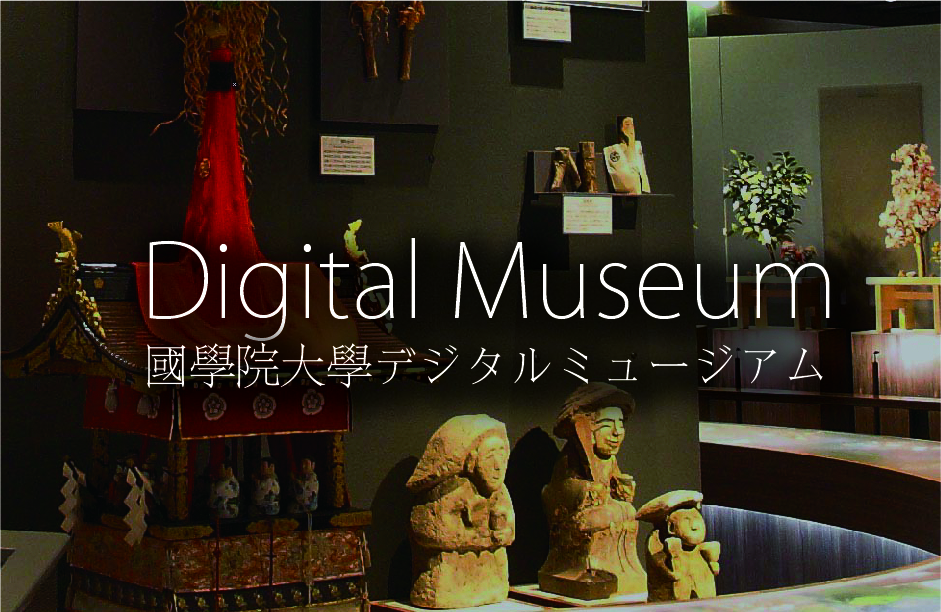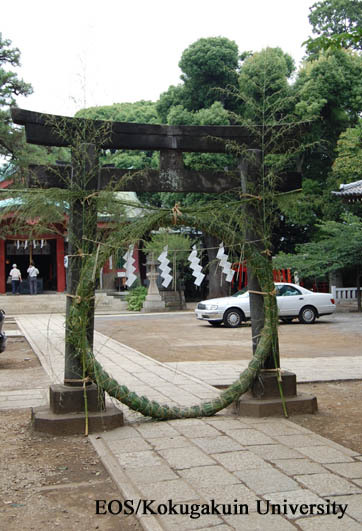- トップ
- Encyclopedia of Shinto
- Chinowa
Encyclopedia of Shinto
| Main Menu: | |
| Links: |
詳細表示 (Complete Article)
| カテゴリー1: | 4. Jinja (Shrines) |
|---|---|
| カテゴリー2: | Ritual Implements and Vestments |
| Title | Chinowa |
| Text | Also called suganuki, a large ring made of cogon grass (chigaya) and erected on the pathway leading to a shrine on the days of purification (harae) of the last day of the sixth or seventh month (called nagoshi harae or minazuki harae). Worshipers at the shrine pass through the ring as an act of purification from misdeeds (tsumi), impurities (kegare), or bad luck. The Muromachi-period work Kuji kongen states that as participants passed through the ring, they recited a verse invoking long life to those who "perform the nagoshi no harai in the sixth month." An extant fragment from the ancient gazetteer of the province of Bingo (Bingo no kuni no fūdoki) relates the tale of Somin Shōrai, a legendary hero who tied a magical ring braided of cogon grass around his waist and thus escaped an epidemic. In ancient times the ring of woven grass was attached to the waist or hung around the neck. See also nagoshi no harae. — Motosawa Masashi |





